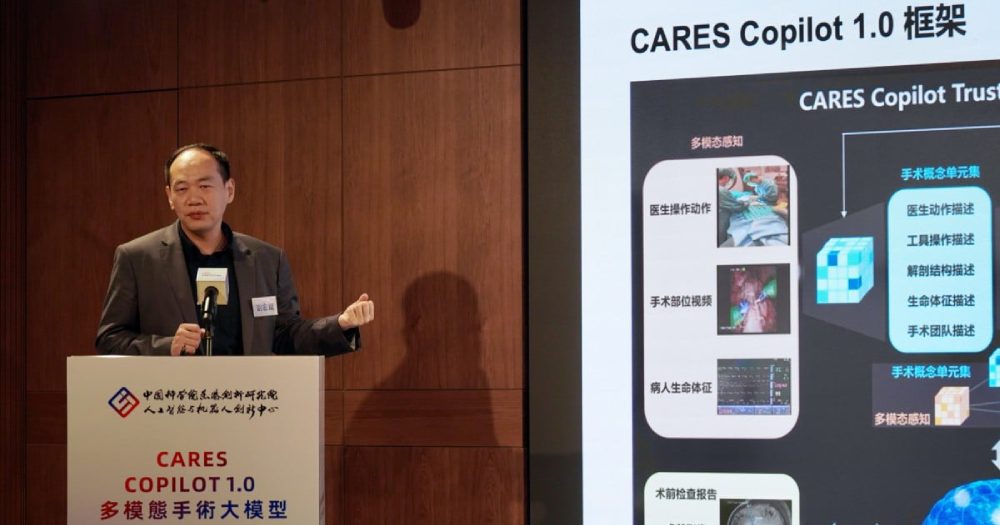China launches an AI tool to assist in complex brain surgery procedures

In a notable advancement within the medical technology field, the Hong Kong-based Centre for Artificial Intelligence and Robotics (CAIR), an extension of the Chinese Academy of Sciences, has introduced an innovative AI tool designed to enhance the precision and efficiency of complex brain surgeries. This development comes at a crucial time when the healthcare sector faces challenges due to a scarcity of specialized databases for such medical procedures.
CAIR revealed the CARES Copilot 1.0 AI model, a pioneering solution aimed at aiding neurosurgeons in providing more effective clinical diagnoses and making more informed medical decisions.
Why does it matter?
According to Liu Hongbin, the executive director of CAIR, this tool is a significant step forward in supporting doctors with "more efficient clinical diagnosis and to make better medical judgments based on sufficient references."
The introduction of the CARES Copilot 1.0 system, which has already been subjected to internal evaluations in numerous hospitals across Hong Kong and mainland China, marks a significant milestone. The tool has been integrated into the daily workflows of medical professionals, assisting them in preparing for surgeries and managing post-operative care, Liu elaborated.
During a recent presentation at the Hong Kong Science Park, Danny Chan Tat-ming, leader of the neurosurgery division at the Chinese University of Hong Kong's Department of Surgery, demonstrated the system's proficiency. He highlighted how CARES Copilot 1.0 can quickly sift through extensive academic literature to extract crucial information and references, boasting an impressive accuracy rate of up to 95%.
This initiative is part of a broader push by Chinese state agencies and private firms to advance AI innovation, fueled in part by the Hong Kong government's InnoHK research program. The AI model, built on the foundation of Meta's Llama 2 large language model and trained across a diverse array of medical databases, signifies China's determination to keep pace with global technological advancements.
The project faced challenges due to US tech sanctions, which led the team to rely on Huawei Technologies' Ascend AI processors for computing infrastructure, diverging from the widely used Nvidia graphics processing units. Despite these hurdles, Liu is confident that adapting to Huawei's system will yield long-term benefits, emphasizing the team's efforts to optimize the training platform.
However, Liu acknowledged the healthcare industry's ongoing struggle with the limited availability and connectivity of specialized databases for brain surgery, a critical factor for enhancing AI capabilities. To address this, the CARES Copilot 1.0 has been enriched with a wealth of medical textbooks, academic studies, and neurosurgical guidelines, aiming to empower physicians with comprehensive data for decision-making.
The context
Since its establishment in 2019 as the first CAS branch outside mainland China, CAIR has sought to merge Hong Kong's international expertise and academic excellence with the mainland's industrial needs.
The team is now engaging with medical device manufacturers to incorporate their AI advancements into healthcare products, underscoring CAIR's role in bridging innovative research with practical medical applications.
💡Did you know?
You can take your DHArab experience to the next level with our Premium Membership.👉 Click here to learn more
🛠️Featured tool
 Easy-Peasy
Easy-Peasy
An all-in-one AI tool offering the ability to build no-code AI Bots, create articles & social media posts, convert text into natural speech in 40+ languages, create and edit images, generate videos, and more.
👉 Click here to learn more


